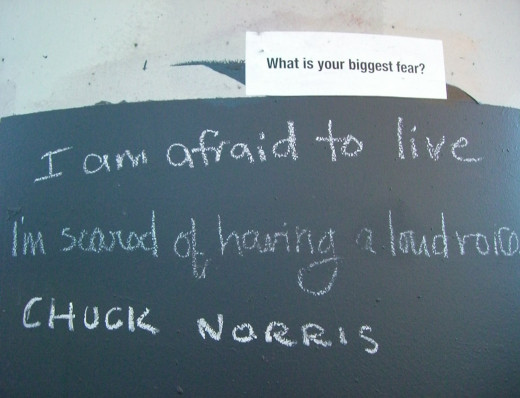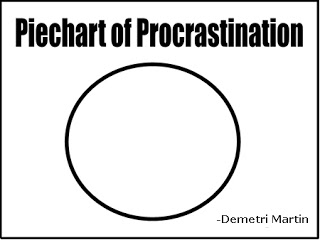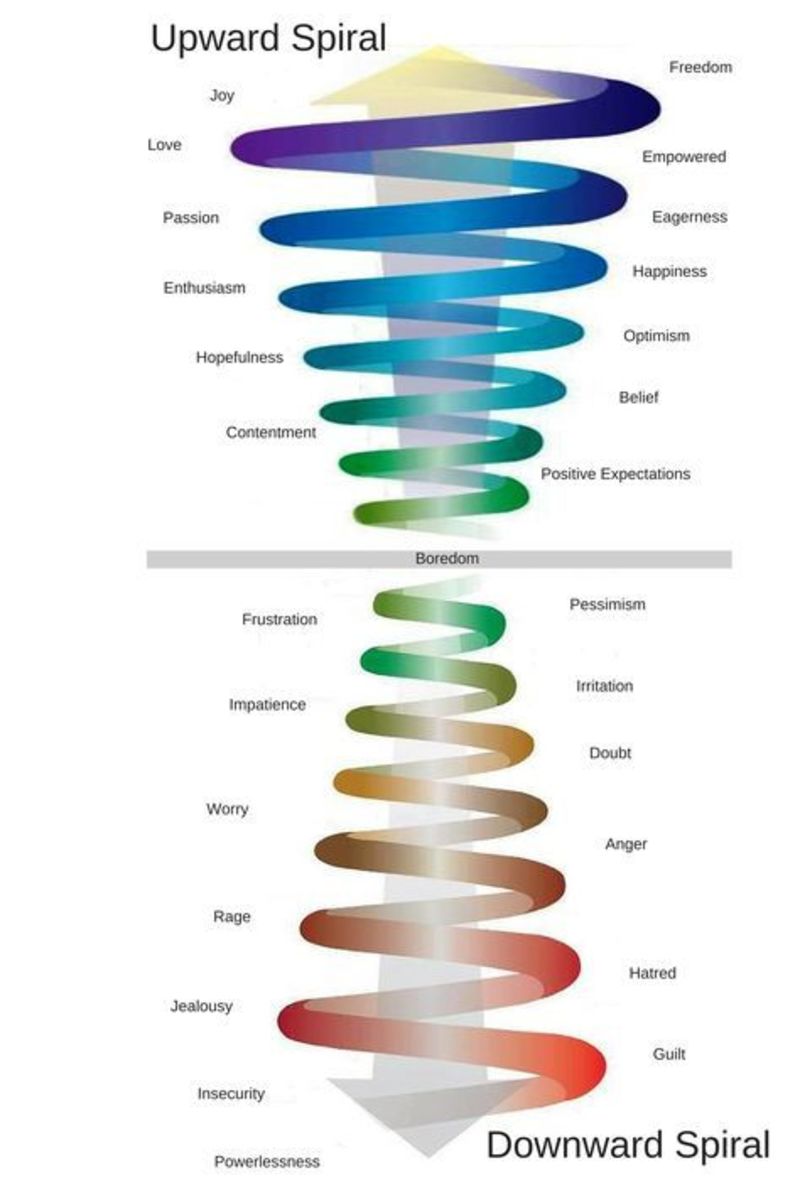How to Stop Procrastinating and Take Action

How to Stop Procrastinating
Procrastination is like being handcuffed to a radiator. You have the key in your hand, the door is open to your success, but you sit there, wherever there may be for you, chained to an immovable object. You don’t move. No matter how much you may want to, something always holds you back. So you never write that book idea you had, you never open that business you've always wanted to, or you wait until the last second to write that essay due in five hours. But why do we do this?
Fear. Fear holds us back. In fact, there are four major fears that cause procrastination: (1) the fear of failure, (2) the fear of success, (3) the fear of rejection, and (4) the fear of not being good enough. What is your biggest fear?
Maybe there is just one big fear holding you back, keeping you from even starting all those things you wanted to do. Or maybe you are a combination of a couple. If you are anything like me, though, you might just be a little bit afraid of everything. There is a ton of advice out there on how to stop procrastinating, but if you do not understand the underlining reasons why you are procrastinating so much, none of that information is very useful.
But have no fear (pun intended). There is hope. With a little bit of effort, you can move past your fears and put an end to procrastination. (And if you are not afraid of anything, you just don't want to do whatever you are procrastinating doing, don’t tune out now, because I have advice for you as well!)

Number One: The Fear of Failure
A fear of failure can be crippling. If failure is what you fear, you may find yourself sabotaging your efforts to succeed before you even begin a task. If you find that you are the type of person who is reluctant to try new things, and hesitant to step outside of your comfort zone, you may fear failure.
The number one thing to remember when trying to confront your fear of failure and stop procrastinating is that you cannot take failure personally. Failure is not a personality characteristic. So if someone criticizes something you have done or your boss yells at you, remember they are not really criticizing you personally.
The next thing to do is learn from the failure. Nobody does things perfectly the first time. I bet if you think of your hero, or someone you admire and respect, they’ve probably made a few mistakes. Mistakes are an important part of life, and they are a stepping stone to learning. Think of scientists. Scientists never get things right the first time, Stephen Hawking and Albert Einstein included. It is what every poor Ph.D student learns in that first agonizing year of grad school. But they learn from their mistakes, and try again.
Ever watched Meet the Robinsons? You can learn a lot from that movie. I am thinking in particular of the scene where the Robinsons ask Lewis to fix the peanut butter and jelly machine on the robot, Carl. Lewis fails, and the Robinsons celebrate. Learn to celebrate failure. It is the only way to learn. Then, once you've learned from failure, keep trying, persist. Keep at it. Keep trying over and over again until you get there.
Trying something new may help as well. Einstein once said that ‘insanity is doing the same thing over and over again and expecting different results.’ And if you are doing things the same way over and over again and it's not working, then frustration sets in and you quit. Maybe trying things a little differently will change all that and motivate you to continue.
But the best thing you can do is just to take action. Feel the fear and take the leap anyway. Take that first step, make a 'to-do list' and then do the first thing on your list, build momentum and keep going. Once you start, don’t give up.
Remember, failing is always better than asking 'what if?'
Number Two: The Fear of Success
You might be thinking: a fear of success? That’s ridiculous. Trust me, it’s not. Say for example, that you hate your job, and want to quit it and pursue a different career, or even just pursue a different job in the same career. But if you do quit, then you will be jobless. You will no longer have any income. How are you going to pay your bills? What happens if you do get that job you want? Will you have to move and find a new apartment? Well how are you going to do that? And what will your friends think? Or your family for that matter? What if you don’t like your new job?
Stop. Right there. See the problem now? If you find yourself worrying about things that have not happened yet, you may be afraid to succeed. When you look so far into the future, that simple task you started with starts to seems overwhelming, and then you shut down and give up. Then instead of finishing that project, you are surfing the internet or watching t.v.
One of things one can do to stop procrastinating and take action is to stop complicating things. Eva Young once said, “to think too long about doing a thing often becomes its undoing.” Stop thinking about it so much, and just take that first step and trust yourself. Believe in yourself. Trust that you can handle any obstacle when it arises, and don't think about it before then. Know that you don’t have to see the whole path, just the beginning to get started.
If you are not the kind of person you who can do that and needs to see the whole path, that’s okay. This solution I learned from my last therapist, a professional, so I'm not just making this up, it works. Sit down and think, I mean really think, about all the consequences that would arise if you were to follow your dreams. Write them down. Then face your fears. Say you would have to move to a new city to start that new career. Think of solutions: how you would get there, where you can find an apartment, etc. After that, moving doesn’t seem so scary after all.
Visualize your success. Many successful people will tell you that visualization is a very powerful tool. Spend some time every day sitting down and imagining that your goals have already come true. Don't skim on the details, use all five senses and really get into it.
A therapist once told me that when faced with difficult situations, I should ask myself two things. What is the worst that could happen? And could I handle it if the worst did happen? You would be surprised how far that can actually get you.

Number Three: The Fear of Rejection
Ever been told no? It hurts, right? Especially if that person you’ve been crushing on doesn’t share the same feelings. But you tried, didn’t you? And maybe this one person said no, but maybe the next person will say yes. You can’t let the fear of rejection keep you from living your life. The brave may die young, but the cautious never live.
In order to get over your fear of rejection, you must accept that rejection is a part of life. Everyone has faced rejection in their life. Think of J.K. Rowling in the early days of Harry Potter. Harry Potter and the Philosopher’s Stone was originally submitted to twelve publishing houses, all of whom rejected the manuscript. I bet you all those people are kicking themselves now. Bur Rowling did not give up, she believed in her work and persisted.
Collect rejection. Have someone say ‘no’ to you over and over again until it no longer bothers you. Or go out in the world and keep asking people for dates, until someone says yes, or you are no longer afraid. Or keep sending that book out to publishers, keep writing, keep sending your resume out until someone says yes. Reward yourself for trying and focus on how brave and courageous you were during the process, and not on the rejection.
In the end, you have to remember that it doesn’t matter what those people think of you. It matters what you think about yourself. Stop worrying so much about how people might perceive you. If it is something you really want, stop listening to all those people telling you ‘no,’ and start listening to yourself. Prove those naysayers wrong. And remember, most of the time, nobody's thinking about you at all. So act like you would if no one was watching.
The best thing you can do is build your self-confidence, but that is an entire subject of its own that is outside of the scope of this already very long article.
Number Four: The Fear of Not Being Good Enough/Trying to Be Perfect
You probably already know if you are a perfectionist. In case you don’t, if you lack self-esteem, constantly doubt your abilities, are always comparing yourself to others, and feel like everyone is better at you at everything, you might be suffering from a crippling fear of never being good enough or not being perfect.
Stop beating yourself up. No one is perfect. That may not make you feel better, it certainly doesn’t make me feel better, but try not to be so hard on yourself. This trick I learned from a therapist (and it may be best for you to try doing this with a therapist as well): try keeping a thought record. Every time you have a negative thought about yourself, write it down, write down how that thought makes you feel, and what triggered the thought. Then later on, go over all those negative thoughts and turn them into positive thoughts. Instead of ruminating on everything you did wrong, remember what you did right. Believe in yourself and work on your self-confidence.
Accept that you do not need to know everything, and it is okay to ask for help. If you find that you do not know how to finish your homework, that is okay, you have no reason to be ashamed or feel like you have to do it yourself. Ask your teacher for help, or a friend who knows how to do it. Need a work out routine and don't know where to begin? Ask a friend for help. Or ask that really hot guy or girl at the gym you've been drooling over what their workout routine is. Get a trainer if you can afford one. There is no shame in asking for help or advice. Do you think Shaun White got the Double McTwist 1260, otherwise known as the Tomahawk, right on the first try? No. He practiced over and over again until he got it. You can do the same.
In the quest to overcome the fear of not being good enough and to stop procrastinating, some might give the advice to give up trying to be perfect – so easily said and so hard to do. It is so easy to tell yourself that no one is perfect and that it is impossible to be perfect. People say perfection is boring and it’s okay to just be you. While that is true, and yes it is so easy to say no one is perfect, it is not easy to stop the quest for perfection and to keep trying and keep failing over and over again. That kind of kills your confidence after a while. I know how hard it is. The only real advice is to not give up anyways. To keep going, to keep fighting despite your crippling perfectionism.
I am by no means a therapist, or psychologist, nor am I in any way, shape, or form trained to help people with phobias. If you find that fear is ruling your life, seeing a therapist can be a good thing. It is nothing to be ashamed of, either. They can help with cognitive behavioral therapy and other methods that can help you face your fear head on.
Number Five: What if it Isn't Fear Holding Me Back?
At this point, you may be saying to yourself that none of those apply to you. Sometimes your task is just boring and tedious and not something you want to do, like writing that paper for economics class that you're only taking because your friend wanted to, or studying for that chemistry test, or doing that report for work, or doing your chores, or getting your butt off the couch and working out. Don’t worry, there is help for you too.
Dr. Piers Steel, one of the foremost researchers on the subject of procrastination, promotes the use of the procrastination equation in his book, aptly named, The Procrastination Equation. In his book, he uses the equation: Motivation = expectancy x value / impulsiveness x delay. In order to increase your motivation and decrease procrastination, one must increase the expectancy or value of the task and decrease the impulsiveness and delay.
To increase expectancy of success is basically the same thing as getting over fear of failure and I will not go into much more detail. But remember, if you think you are going to fail before you even begin, then you are very unlikely to ever start, so try thinking positively. Start saying I can do this, and then try the methods listed below.
- Make the task less boring. Boring tasks can be extremely painful to accomplish. To increase the value, try to make the task less boring, if possible. Turn it into a game, or a song, a poem, anything to make it seem interesting.
- Reward yourself with something like this: I spend the next two hours writing this paper, then I can spend the next hour watching tv or hanging out with friends. If I go to the gym everyday for a week, then I will go shopping to celebrate this weekend.
- Connect the task to something you care about. You are doing your homework, so you can pass the class, so you can graduate, so you can have that career you've always wanted. You may find yourself in the position where if you really sit down and think about it, you begin to realize that you are not passionate about any of the things you are doing, just like I did about a year ago. You will be faced with a difficult decision then, and you will need to decide if what you are doing is really what you want in life. It may lead you on a painful journey towards self-discovery, but sometimes the journey is worth it.
- Set goals to decrease impulsiveness and delay. Sometimes a huge task can seem daunting, and then you just keep pushing it back and pushing it back because it never feels like you have the time to finish it. So break that huge goal down into smaller tasks. If you are doing a presentation, you might break it down into: topics, what research you will need to do, planning each slide, editing, etc. Then make a timeline. Example, I will decide what topics to do before lunch, and then do the research after lunch. The next day I will work on slide 1-4, the day after that 2-8. You get the picture. Be careful, though, and set realistic goals. Rome wasn’t built in a day. Also, make a list and cross each goal that is done off the list, you will feel more accomplished this way.
- Start with the hardest task of the day. Some people believe if you leave the hardest for last, it gets easier to do. It doesn’t. If you get the hardest thing done first, not only does it build momentum, but it builds confidence, and everything else will seem so much easier after.
- Change environments. This is especially a good one. Ever walked into your room and suddenly just felt tired and didn’t know why? It is because you are used to relaxing and sleeping in your room, and not working. I like to relate it to the law of inertia: a body in motion stays in motion unless acted upon by an external force. You are that body of motion, your bed the external force, and as soon as you sit or lie down everything stops, and it is a hundred times harder to find the energy to get back up. So try going to the kitchen, or a local café, or to the library, or even a friend's house (of course not the kind of friend who will encourage you to procrastinate), and do what needs to be done there so that you can relax in your room.
- Positive affirmation is a very good way of getting things done. Think of how accomplished you will feel when that task that sits before you is done? Or think of what you can do with your free time when you are finished. That is always a real motivator.
- Eliminate procrastination pit-stops. If you can, turn off your computer. If you can’t, this one works well for me, log out of your faceboook, e-mail and whatever other sight you continuously visit, like Failblog. Even if you find yourself typing in the web address, force yourself not to log-in. Have snacks and a drink nearby so that you are not tempted to get up and get some.
- Try RescueTime. It is a program online that tracks your computer activities. If nothing else, when he realize how much time you spend procrastinating, it just might shame you into being more productive.
- Surround yourself with hard working and motivated people. Try doing your homework, not necessarily with your friends who like to put on caps and pretend their an old person knitting (true story), but try doing your homework with the kids in class who get stuff done. Work in the office with those people who are always getting things done, always on their toes. Join a local support group. Anything to help you stay on task.
- Listen to motivational speeches or songs. Every time I write a hub or blogpost, or start on a new story idea, I listen to motivational speeches on Youtube, or I listen to the motivational playlist that I created for myself with songs such as Go the Distance from Disney’s Hercules soundtrack, Remember the Name by Fort Minor, Life is Beautiful by Sixx AM, Back in the Saddle Again by Aerosmith, Theme from NY, NY by Frank Sinatra, or Empire State of Mind by Jay-Z and Alicia Keys. If you're embarrassed listening to these kind of things, remember, nobody but you has to know.
- The best thing you can do (and I know I've said this before) is just to take action. Force yourself just to start that project, or sit down and write that paper. What comes out may not be any good at first, but you started and that is what is important.
Short Summary of Ways to Overcome Procrastination
Reason for Procrastinating
| Way to Overcome
| Way to Overcome
|
|---|---|---|
Fear of Failure
| Know Failure is Not Personal
| Learn from Mistakes
|
Fear of Success
| Stop Complicating Things
| Visualize Your Success
|
Fear of Rejection
| Accept/Collect Rejection
| Build Self Confidence
|
Fear of Not Being Good Enough
| Thought Record
| Ask for Help
|
Task too Boring or Tedious
| Get Motivated
| Take Action
|
For what reason do you procrastinate the most?
From now on, no excuses. If you find yourself saying, 'I can’t start this now, I don’t have enough time,' that is crap. You have plenty of time to get something done, even if it is only twenty minutes. Every time an excuse pops into your mind, recognize it for what it is and banish the thought.
Remember, you can do it.
Still handcuffed to that radiator? Just remember, you are the only one holding yourself back, and you are the only with the key to free yourself. Unlock your chains, and take the first step.











